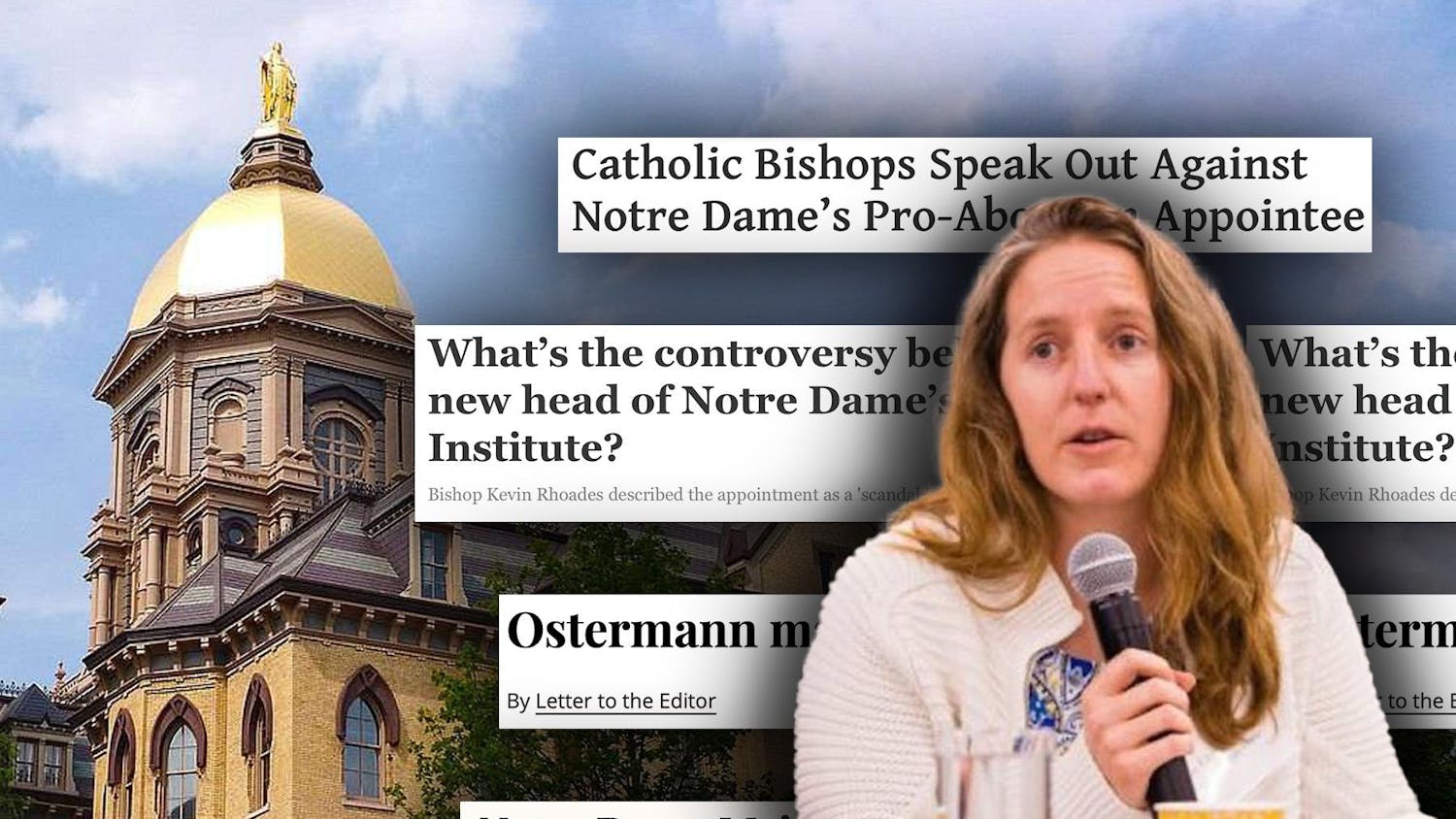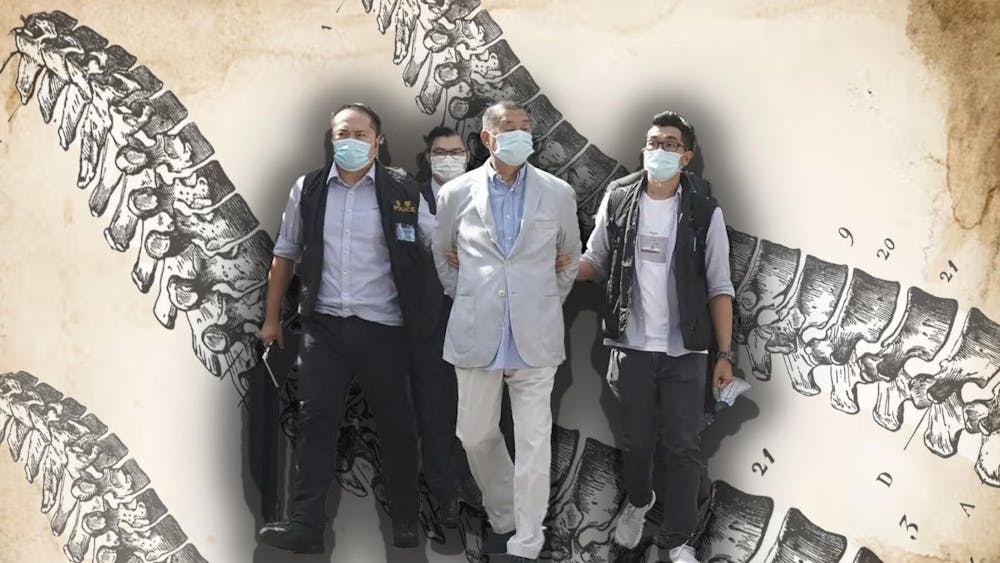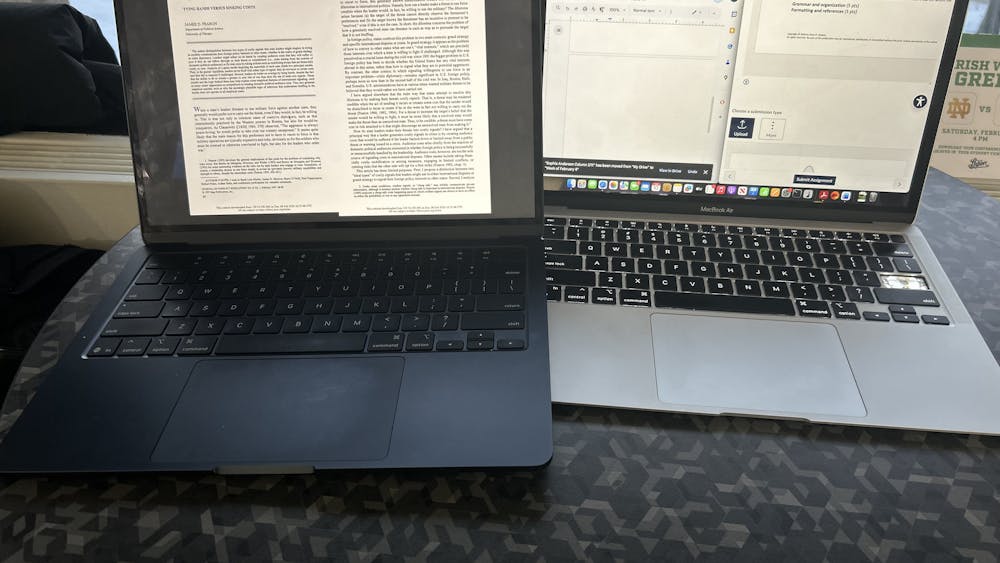It is an understatement to say that last week has been a hectic and chaotic one on every level, from the first presidential debate of the 2020 election on Tuesday night, to the news of President Trump and Notre Dame President Fr. John Jenkins testing positive for COVID-19. It is, unfortunately, impossible to cover the whirlwind of column-worthy happenings at the moment, so I will spin the globe and pick the item that my index finger lands on.
As a political science major, I feel that it is important to discuss the first presidential “debate” that took place Sept. 29, if it may be called that. I try to portray an unbiased political angle as much as possible in my columns to foster dialogue across the aisle (something which is admittedly exceedingly difficult with the power vacuum in office). Therefore, this column will not be an analysis of who won the debate and why. Rather, it is a plea for some semblance of civility and an indictment of the mockery of decency that was put on display at the debate.
I do not wish to overstate the importance of presidential debates in elections. It may be argued that presidential debates are only so valuable, particularly in today’s era of politics where polarizing candidates will maintain their most fervent supporters despite outside developments. However, this does not mean that debates serve no purpose. On the most basic level, a presidential debate is another wheel in the locomotive of American democracy; they are an opportunity to present the style of leadership that a candidate will bring to the presidency, and an opportunity to display the advantages of that display over the opposition’s. There have been mudslinging debates in the past, for certain, but for the most part decorum and decency are maintained.
I do not need to tell you that this decency was completely abandoned during the course of the first debate. It is not necessarily a matter of who won the debate, but rather that the American people lost it, as CNN’s Jake Tapper framed it in the post-debate coverage. I continually stress the need for dialogue and conversation in my columns, and this plea is even more significant in light of the ongoing civil and public unrest that came to the forefront during this past summer. For President Trump, the debate was an opportunity to widen his base of supporters and bolster a campaign that currently has him losing to Biden across various polls. Instead, we were treated to 90 minutes of Trump repeatedly interrupting Biden and moderator Chris Wallace, vicious personal attacks on Biden’s family and mockery of Biden for abiding by the COVID-19 guidelines (it should be noted that Biden tested negative for coronavirus following the debate). On the flip side, Biden called Trump a clown and a fool on numerous occasions.
Even through the lens of entertainment, this was horrendous television. Even soap operas have a certain set of rules and precedents that they abide by, a comforting air of predictability that makes up for other features lacking. The first presidential debate sliced through all semblance of the predictability of debates and has even led to some calling for the moderator to be able to cut out the candidates’ microphones if things get out of hand to this extent again.
A column in the Washington Post highlighted that the debate was beneficial precisely because it did away with this predictability, cutting through the rhetoric and political niceties and showing who the candidates truly are. For President Trump it was business as usual, bullying all sense of decency and normality and repeatedly interrupting Joe Biden and moderator Chris Wallace. Although some of his answers were lackluster, Biden showed that he could weather the onslaught and disregard for decency on his opponent’s side. While it is true that this debate showed us the candidates’ “true colors” in a sense, a presidential debate should not be a therapy session. It is an essential part of the democratic process, and natural process and shift of power, that two candidates can come together and civilly disagree with one another. I am not advocating for pomp and circumstance, and it is certainly true that presidential debates are a type of performance where the candidates are engaged in a dance of dodging difficult questions, but the point is that it is a performance. A dance cannot be disregarded because one or two of the performers are critical of the choreography.
I do not advocate politicians advancing the same, frustrating rhetoric that often characterizes presidential debates. But what I can say is this: We deserve better.
Gabriel Niforatos is a senior majoring in political science with minors in the Hesburgh Program in Public Service and theology. He is passionate about giving a voice to the disenfranchised and writing is the muse he is persistently chasing. He can be found at gniforat@nd.edu or @g_niforatos on Twitter.
We deserve better
The views expressed in this column are those of the author and not necessarily those of The Observer.









